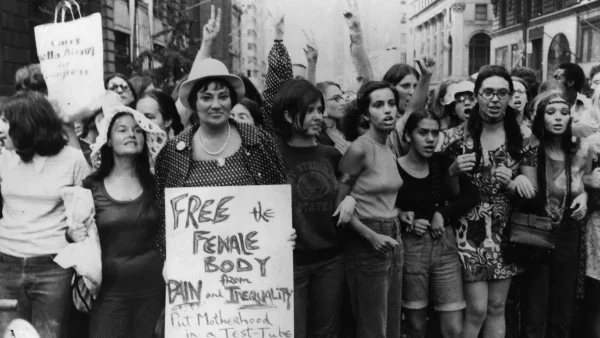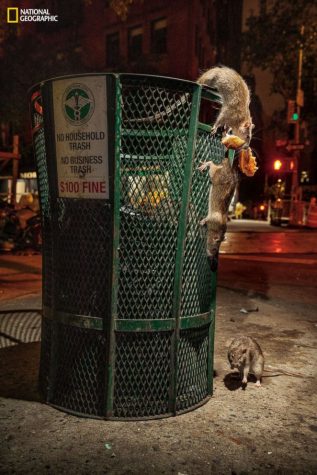OP/ED: Janet Cooke’s Scandal- 35 Years Later
This past October marked the 35th anniversary of journalist Janet Cooke’s story “Jimmy’s World,” which won a Pulitzer Prize. Days later, The Washington Post was forced to give back the award because the story was fabricated.
The journalism business was never the same since then.
The story depicted the life of an eight-year- old child named Jimmy who was addicted to heroin. The gut wrenching reality of Jimmy’s world captured the hearts of all Post readers with its opening lead.
“Jimmy is 8 years old and a third-generation heroin addict, a precocious little boy with sandy hair, velvety brown eyes and needle marks freckling the baby-smooth skin of his brown arms.”
“He nestles in a large, beige reclining chair in the living room of his comfortably furnished hike in Southeast Washington. There is an almost cherubic expression on his small, round face as he talks about life-clothes, money, the Baltimore Orioles and heroin. He has been an addict since the age of 5.”
Surprisingly, most college students may have never heard about Janet Cooke or her infamous article until recently, but it is something we should never forget. Cooke’s decision to fabricate the story of Jimmy left a stigma on African-American journalists for years to come, including myself, to endure the consequences.
The brilliantly written story catapulted Cooke to new heights, leading to her Pulitzer Prize win. It was a glorious feat in her career but two days later, it would become her greatest downfall.
The journalism field is challenging as it is for women and minorities, but it’s even more challenging since Cooke fabricated an entire story. It directly affects my life because future employers may associate me with her. Cooke was a young, African-American female and like many others at this college, I fall into the same categories. Day to day, I don’t think about the three targets on my back but I know they’re on me. I think about the future and when I will interview for a position with a media organization. Will they automatically think I will be another Cooke? Will they scrutinize my work more than my peers?
So you might be studying in another field. Will you have a target on your back?
Young? Check.
Minority? Check.
Female? Check.
The Holy Trinity of employer doubt.
In 1982, Cooke sat down on the Phil Donahue show to share her side of the story. Cooke placed blame on the success of Bob Woodward and Carl Bernstein, the two who broke the Watergate scandal. She should have taken accountability for her actions and not have blamed the success of Woodward and Bernstein for a reason to lie. Instead, use them as motivation to deliver the best news story possible, without fabrication. Woodward and Bernstein were completely truthfully in their news reporting and Cooke should have done the same.
As a student journalist, I understand the pressure to make your story the best possible. Wanting to receive positive praise and recognition for your work. There’s no greater feeling, especially after putting in countless hours into investigating and writing. But it should always be done the right way. The truthful way where there’s no fabrication in sight, only the facts.
This business is built on one word: credibility. Journalists have a responsibility to the people which is to deliver the truth. By Cooke lying about a child who is addicted to heroin, it makes readers skeptical of what exactly is the truth. Given the nature of this story, she could have helped children who were actually addicted to drugs. There were children who she could have interviewed. So many “shoulda, coulda, wouldas.”
The saddest part? There were countless kids in Washington D.C. at the time with those problems. The community for a few months when the article was originally published. And then once the story was proven false, forgotten were the children who actually needed the help.
Where is Cooke now you ask? She is currently living in Kalamazoo, Michigan, working as a sales clerk in a clothing store. There is nothing wrong with being a sales clerk but I bet for Cooke it’s not what she imagined for herself. The Washington Times reported that Cooke would love to be welcomed back into the journalism industry. But, that ship has sailed. If only she could turn back the hands of time, would she have submitted her story for publication?
As a student journalist, I’m bracing myself for what’s in store. I will have to work harder than my peers just to show that I’m just as good. I’ve accepted that. But most of all, that I’m truthful in my writing. I’ll prove myself. I’ll show that thirty years after a horrific scandal, all young, African-American female journalists should not be judged by the mistake of one. For there are the successes of many to measure us by. And it is this generations job, in all fields, to continue to prove the skeptics wrong.

Shantal Marshall is from Brooklyn, New York and majors in journalism at Mercy College. Her hobbies include reading O magazine, listening to music, and...













